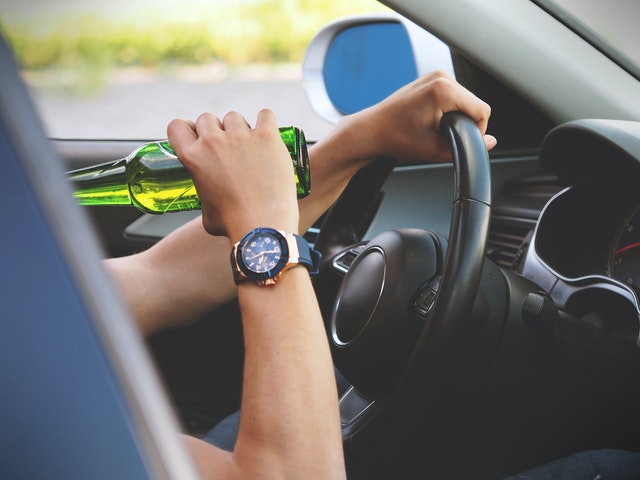Driving while drunk is a crime. Officially known as Driving Under the Influence (DUI) or Driving While Intoxicated (DWI), this is a serious crime that could lead to severe accidents or even death. Even if you’ve only consumed a small amount of alcohol, driving under the influence can be dangerous. Moreover, exceeding the standard BAC (blood alcohol content) level is illegal and can result in strict penalties and even arrest.
What to Expect When a Police Stopped Your Car
Police officers are always on the lookout for drivers showing unusual behaviors on the road. When a police officer asks you to pull over because of reasonable suspicion that you are operating under the influence, here are the steps they usually take:
They Will Observe Your Vehicle
Before they even ask you to stop your vehicle, police officers keep watch for unusual driver behavior. If they notice that your car is drifting into other lanes, speeding, swerving, and so on, they will call you out. If you are not guilty of the crime, make sure to keep your eyes on the road and drive safely.
They Will Conduct a Sight and Smell Inspection
The first thing they will do as soon as you stop is to look for physical evidence. Police officers will look into your car for any signs of alcohol or drugs. They might even let a sniffer dog investigate your vehicle. Expect them to ask you to open your containers and other hidden parts of your car.
They Will Observe Your Behavior
Alongside the inspection is an investigation of your behavior. They will check how well you engage with them and how attentive you are. Some signs they will look out for to confirm that you are intoxicated are the following:
- Poor balance and coordination
- Poor use of words
- Cursing and slurring
- Difficulty responding to questions
- Difficulty understanding the questions
If you find yourself in this situation, it would be best to stay quiet and follow what they ask you to do.
Other Things to Expect
Should they assume that you are driving under the influence, then you would be asked to submit to the following tests:
Test 1: Chemical Testing
Using a breathalyzer test, they will measure the alcohol levels in your bloodstream. This device can detect the alcohol in your system as early as 15 minutes after consuming alcohol and up to 24 hours. If your BAC (blood alcohol content) exceeds what is considered normal, you may get arrested.
Test 2: Field Sobriety Testing
This test is also known as the Field Sobriety Test (SFST), composed of three tests you need to perform during a traffic stop. In this test, you are to perform the following:
- Horizontal gaze nystagmus (HGN): An alcohol-impaired person would usually have problems tracking a moving object.
- Walk-and-turn test: The officers will ask you to follow a straight line while performing actions to test for indications of impairment.
- One-leg stand: You will be instructed to stand on one foot for extended periods.
Conclusion
Before the police officers can arrest you, they need to have sufficient evidence that you have indeed committed a crime. Should you be guilty of a DUI, you may face arrest and penalties for unsafe driving. Whether you are guilty or not, speak to an experienced Boston criminal lawyer to know where you stand while your case is pending.
If you need a Boston criminal lawyer, The Fernandez Firm is here to help. We specialize in criminal cases and do our best to provide the best outcome for our clients. Our attorneys are available 24/7. Call now at +1 (617) 393-0250 for a free consultation regarding your case.



